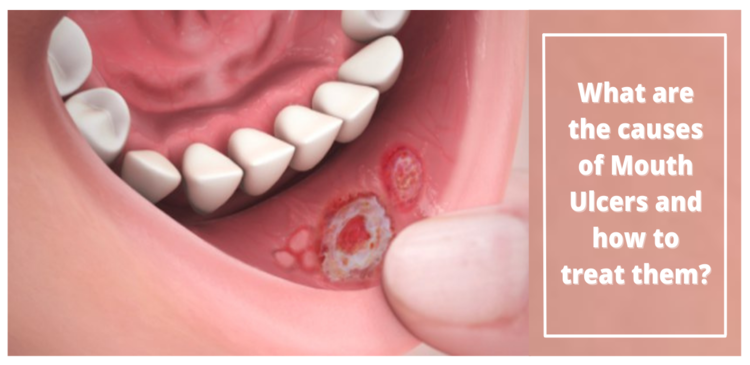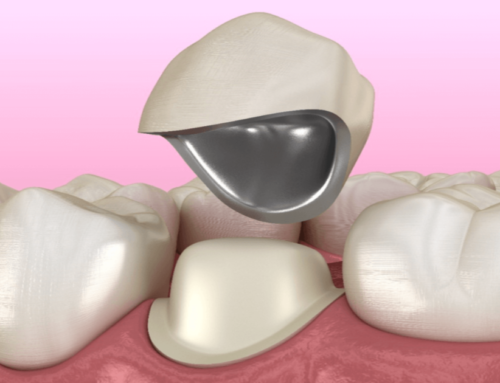Mouth ulcers also known as canker sores are usually a normal small, painful lesion that develop in the mouth or at the base of your gums. It is difficult to eat, drink, and talk if we have mouth ulcers. People with a family history of mouth ulcer have a high risk of having it. It is also common for women and adolescents. Mouth ulcers are not at all contagious and usually go away within one or two weeks. However, if you get mouth ulcers more often and also if it is large and extremely painful it is advised to consult a doctor if it lasts for a long time without healing.
Why do mouth ulcers hurt so much?
A canker sore or mouth ulcer is an injury inside the mouth, and the reason behind this is that the inside of your mouth has digestive enzymes and acids that eat into sore, which causes the pain.
What triggers mouth ulcers?
There is no definite reason behind mouth ulcers. But there can be some factors that can trigger mouth ulcer. These include:
- Hard brushing, minor cut from dental work or accidental bite
- Toothpaste and mouth rinses
- Acidic food can be sensitive in mouth for example citrus fruits, pineapples, chocolates and coffee.
- Lack of essential vitamins, like B-12, zinc, iron
- Allergic response to mouth bacteria
- Because of dental braces
- Hormonal changes for women during menstruation
- Lack of sleep and stress
- Fungal and bacterial infections
Canker sore can be a small white or yellow oval shaped ulcer
- a painful red area in your mouth
- A tingling sensation in your mouth
- a painful red area in your mouth
What are the symptoms associated with mouth ulcers?
During extreme outbreaks of mouth ulcers, some experience fever, sluggishness and swollen glands.
Canker sores are of three types:
- Minor
- Major
- Herpetiform
Minor
Minor cankers are small and oval or round ulcers that will heal within one or two weeks without scarring. One or more painful sores that appear on roof of mouth tongue and appear on cheeks. It appears as red edges or yellow.
Major
Major canker sores can be large and deep than minor sores. They are irregular edges and it can take more than 2 weeks to heal which can extend to 6 weeks. Major canker sores can have a long scarring.
Herpetiform ulceration (HU)
Herpetiform canker sores are pinpoint in size, it occurs in clusters of 10 to 100 and it often affects adults. It has irregular edges and will often heal without scarring in one to two weeks. HU is not at all contagious and recovers very quickly.
You have to consult a doctor if you develop:
- Unusually large mouth ulcers
- Developing new mouth ulcers before the old ulcer healing
- Ulcers that take more than three weeks to cure
- Sores that are not painful
- Mouth ulcers that effects the lip
- Pain that is uncontrollable through natural medication
- Major difficulty in eating and drinking
- High fever and diarrhea during canker sore
Additional Causes of Mouth Ulcers
- Stress and Anxiety: Emotional stress can trigger mouth ulcers.
- Medications: Certain drugs like NSAIDs or antibiotics can cause ulcers.
- Hormonal Changes: Pregnancy or menstrual cycles can contribute to mouth sores.
- Nutritional Deficiencies: Lack of vitamins B12, iron, or folic acid can increase risk.
Preventive Measures
- Eat a Balanced Diet: Include foods rich in vitamin B12, folate, and iron.
- Stay Hydrated: Drink plenty of water to maintain oral moisture.
- Avoid Trigger Foods: Spicy, acidic, or hot foods may irritate ulcers.
Medical Treatments
- Over-the-counter Medications: Recommend gels or ointments to soothe pain.
- Prescription Solutions: Mention corticosteroids or antibiotics for persistent cases.
- When to Seek Help: Suggest seeing a dentist or doctor for recurring ulcers.
Are mouth ulcers cancerous?
Mouth ulcer and mouth cancer are totally different in their symptoms. Let us compare what its difference is:
- Mouth ulcers are often painful but mouth cancers are not at all painful
- Ulcers will clear up in within 2 weeks whereas mouth cancers will not go in and it will spread inside the mouth
- Cancer in the mouth will have rough patches which is hard and not easy to scape of easily
- Mouth cancer is a mix of red and white large that appears on the tongue, the back of the mouth, gums or on the cheeks.
- Mouth cancer can happen because of heavy drinking and tobacco use.
What are some ways to treat mouth ulcers?
Almost all mouth ulcers don’t need treatment. But if you get it more often and if it is extremely painful, there are some treatments that can reduce the pain and healing time. These include:
- Rinsing mouth with salt water and baking soda
- Putting milk of magnesia on the ulcer
- Covering mouth ulcers with baking soda
- Apply ice on the canker sores
- Usage of mouth rinse that has steroid which can reduce pain and swelling
- Use topical paste
- You can also place damp tea bags on your mouth ulcer
- Intake of nutritional supplements like vitamin B-6, vitamin B-12 and zinc
- Try natural methods like charmomile tea and licorice root
Complication of canker sores
You may experience difficulties when your it is not resolved in few weeks such as
- Difficulty or pain while brushing your teeth or eating.
- May feel fatigue
- Sores spreading outside your mouth
- Fever and nausea
Tips to prevent mouth ulcers
- There are some steps to reduce the occurrence of mouth ulcers. Avoid the use of citric fruits and acidic food which can irritate your mouth. Citric fruits like pineapple, grapefruit, lemon or anything spicy.
- Choose whole grain foods and non-acidic fruits and vegetables. Have a healthy balanced diet and take multivitamin tablets.
- Avoid talking while chewing your food to reduce accidental bites.
- Reduce stress and have a good oral hygiene by using dental floss and brushing after meals can reduce mouth ulcers to a certain extend.
- Get adequate sleep, this will not only reduce mouth ulcers but also other illnesses.
- Use soft bristle toothbrushes and mouthwashes which can help reduce mouth ulcers.
- Quit smoking
- Deficient filling
But thankfully, they tend to clear up on their own, the pain and difficulty associated with ulcer will disappear in a few weeks. You can take the help of some medications like ointments and it will solve the issues of pain and swelling but for some people it will resolve without any medications. To prevent outbreak, it is advised to reduce acidic food, reduce stress and take proper care.





